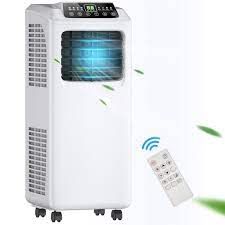
Last updated March 3, 2022 by ![]() Cielo in Blog
Cielo in Blog
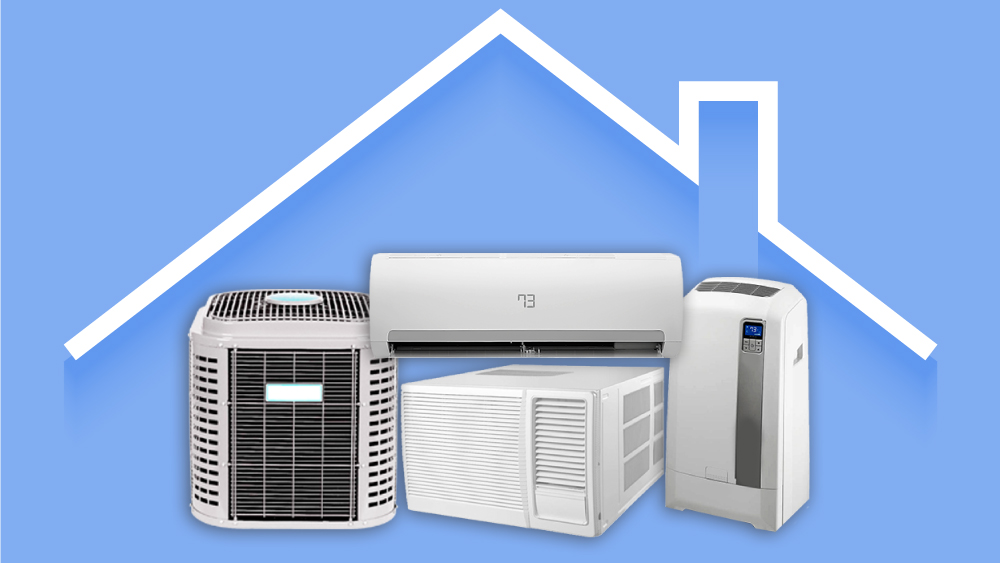
This guide covers all types of air conditioners that you need to know about to make the right choice for your next cooling or heating appliance!
Let’s start with some statistics and move on to learning about various types of ACs that are available in the market.
Air conditioners are found to be amongst the most common electrical appliances in homes within the US. Almost 75% of homes have air conditioner installed of one type or another. Based on the statistics gathered by the U.S Department of Energy, air conditioner usage amounts to about 6% of total electricity produced in the country. When we convert this usage into monetary terms it gives us a staggering amount of $29 billion.
http://valleyofthesunpharmacy.com/tadacip/
Now that we know the amount of money spent on powering different types of air conditioners, let’s see what one goes through when buying a new air conditioning system or replacing an old one.
The air conditioning unit is an integral part of any home & takes up a major chunk out of your must-have home appliances budget. Making the right choice is crucial as your home’s cooling, comfort & energy consumption are directly dependent on it. There are different types of air conditioners, each having their own pros & cons.
http://www.024pharma.com/xanax.html
Let’s dig in deep & go through the types of air conditioners available in the market so that you can make a qualified decision about your next air conditioning system.
There are eight main types of air conditioning equipment out there in the market. Each type of air conditioner is designed for a certain space & fulfills a certain purpose. The different AC types are as follows:
Here is a breakdown of 4 important factors to consider when selecting the best type of AC for your home, described below:
Important Factors When Selecting the Best Type of Air Conditioner for Your Home?
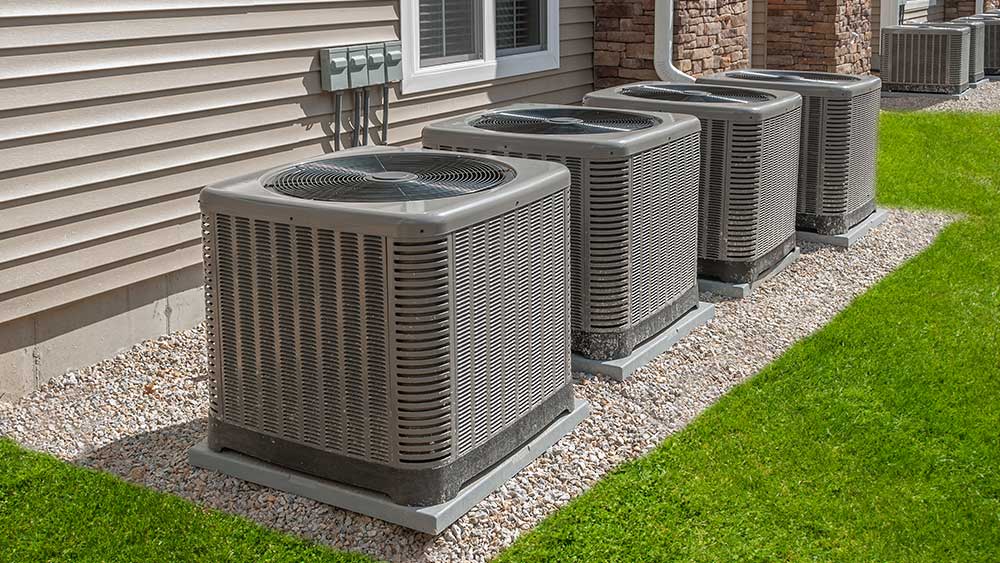
If you have a large home & wish to cool multiple rooms at once then this type of air conditioning is best suited for you. A central air conditioning unit uses a split system that regulates air through ducts installed in your home. It is also known as a ducted system.
The split aspect implies that the system is a combination of two main units. The outdoor unit packs in the condenser and compressor. While the indoor unit comprises the evaporator coils & air handler. Like any typical air conditioner, central air conditioning also uses refrigerant in removing heat from the indoor air. This heat is pulled outdoors & cool air is pushed in through the ducts.
Utilizing modern HVAC technology, programmable thermostats can be coupled with central air conditioners for a smart home experience.
Advantages of a central AC system:
Disadvantages of a central air conditioning system:
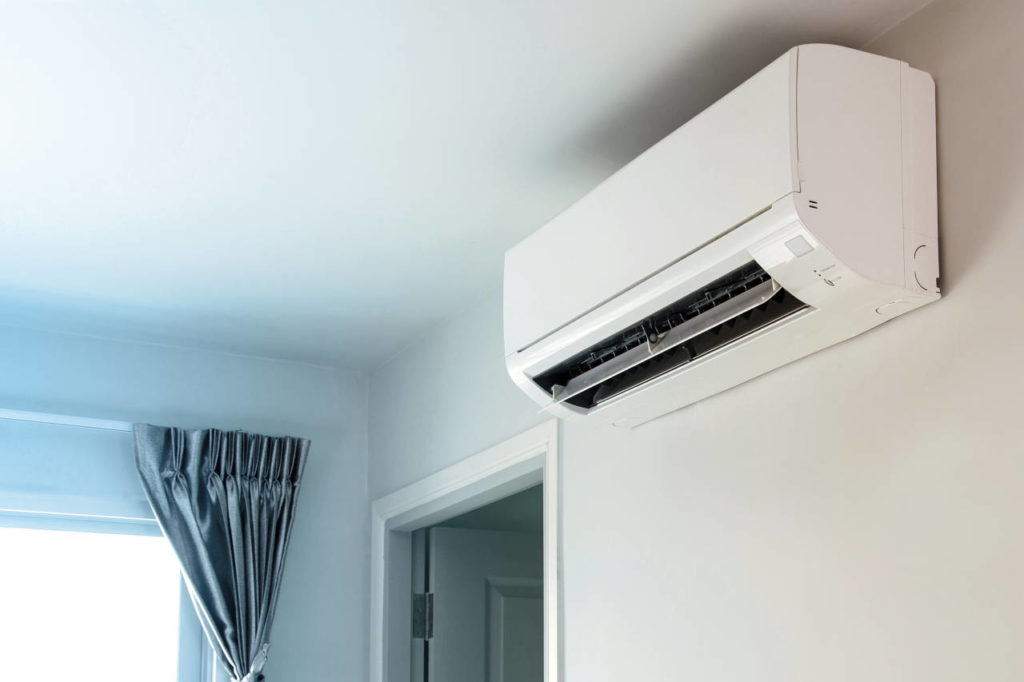
If you want better efficiency, or you want to do away with a lot of ducting, or you simply just want a portion of your home to be cooled, then opting for ductless mini-split air conditioners is a great choice. Ductless systems are a great choice for contemporary homes.
Such type of an air conditioner is a combination of an outdoor unit comprising of a compressor & a condenser that comes along with one or more indoor units. These indoor units are mounted on a wall and equipped with air blowers. The indoor & outdoor units are connected through tubing and refrigerant circulates through them in variation depending on the type of usage.
Since these indoor units are small and compact, each room usually gets its unit installed that can either be used for heating or cooling purposes. Such types of air conditioners are regarded much more efficient in energy consumption compared to some of the other options available out there but can also be heavy on the pocket if you plan on installing one in each room to cover the entire house.
Ductless mini-splits come with a remote control but coupled with a smart AC controller you can operate them using your phone, from anywhere!
Advantages of ductless mini-splits:
Disadvantages of ductless mini-splits:
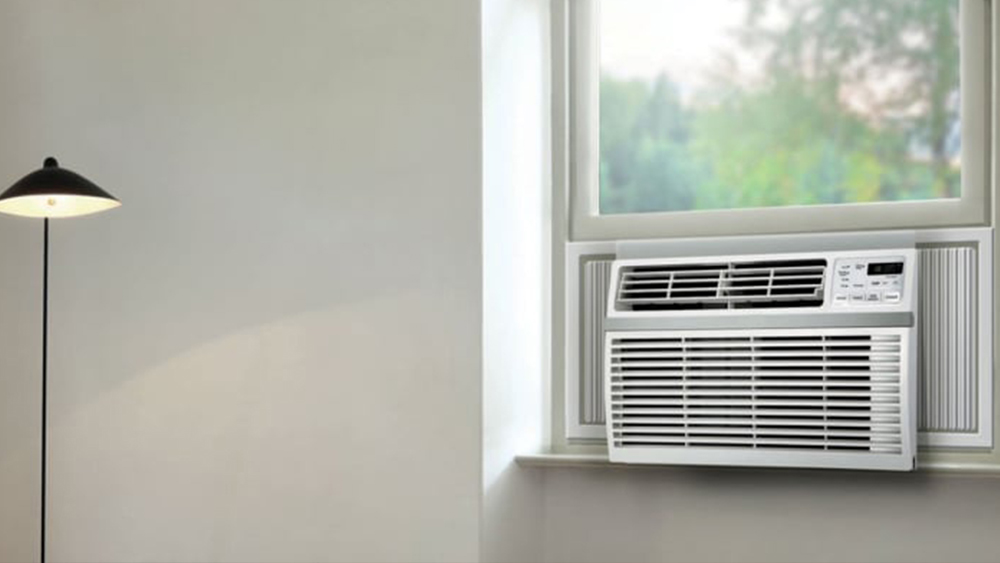
Since Window air conditioners come in different sizes, they would be suitable if you’re looking to cool a single room or a small area. If you go for a large window air conditioner you can even cool a small home considering it is a single story or one open space. Window air conditioners, since the beginning, have been labeled as champions of cooling smaller spaces & regarded as the most common type of air conditioner.
A window air conditioner is a single unit with all of its components enclosed inside. It ejects heat out of its outdoor side and blows cool air into the room on the indoor side. As the name suggests, it is installed in a window or by making a hole in the wall. Such air conditioners have a filter that slides out so that it can be cleaned regularly for full AC efficiency. These air conditioners have controls on the unit & may also come with a remote.
Advantages of Window ACs:
Disadvantages of Window ACs:
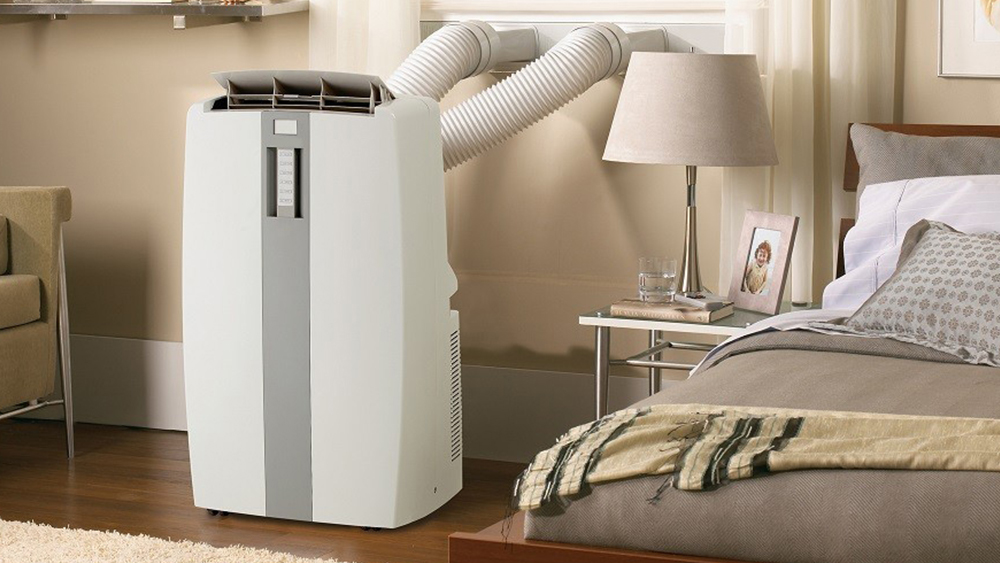
Portable air conditioners are similar to window air conditioners. They are also placed in a single unit with all its components enclosed inside but the difference is that it is a free-standing unit and therefore can be moved from room to room. All it requires is a power outlet to power it up & access to a window where the unit’s air can be exhausted from using its funnel.
You can opt for a portable air conditioner if you want temporary space cooling or wherever it’s not practical to install a window or split air conditioner. They are very handy and smaller versions can even be used for kennels or bathrooms. Portable ACs can be singl- hose that takes in air from inside a room and expel it outdoors. Or, dual-hose which pulls air from the outdoors using one hose, this air cools the compressor and is then exhausted outdoors from the other hose.